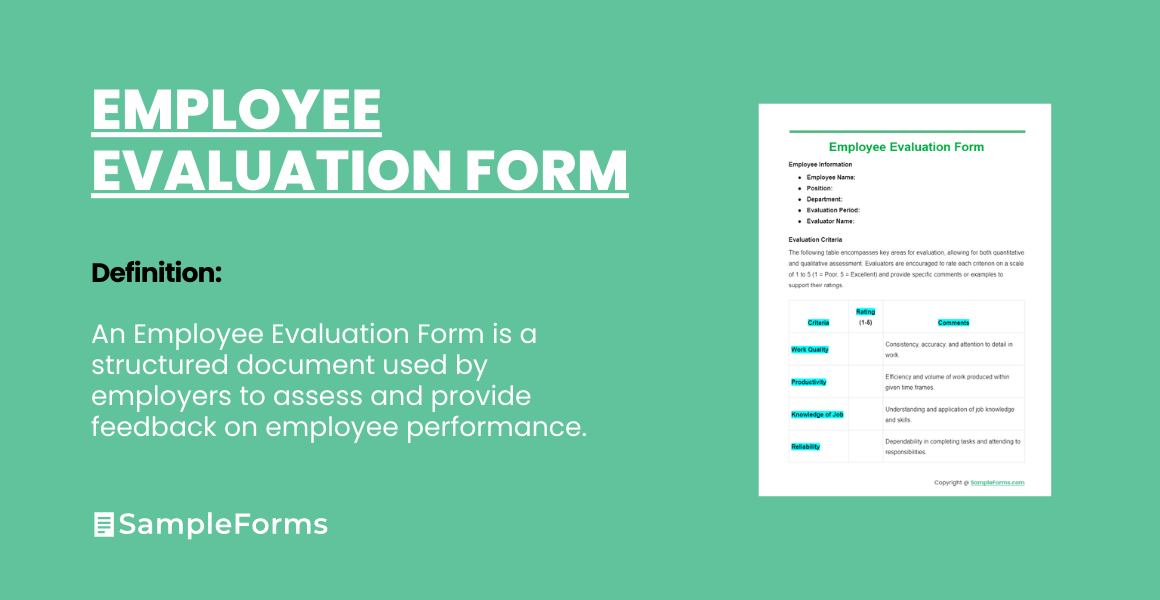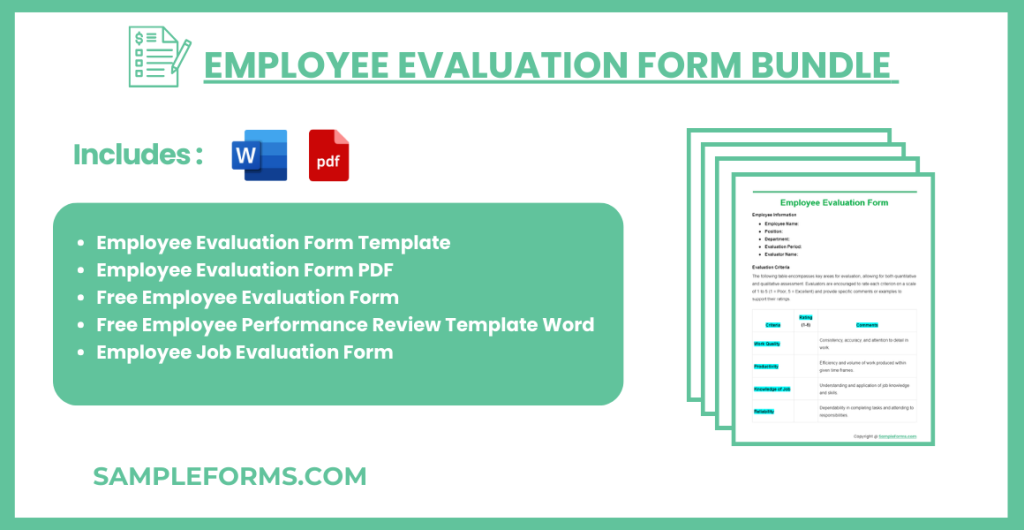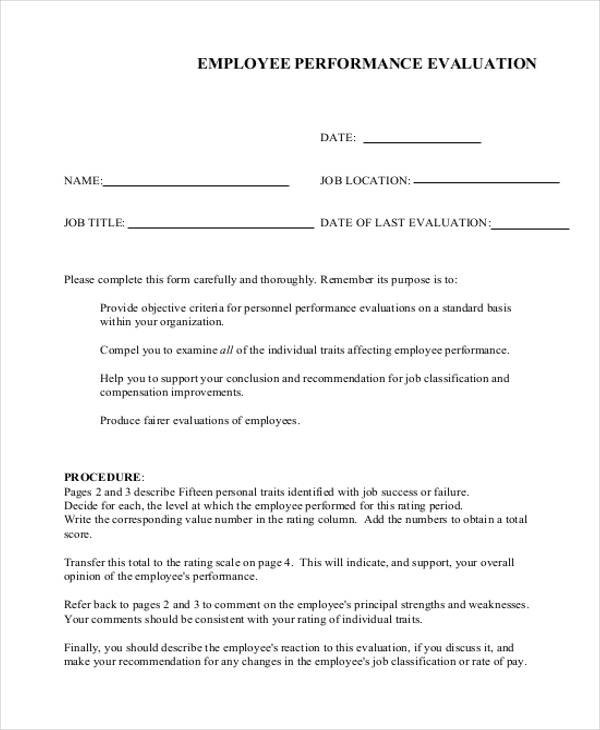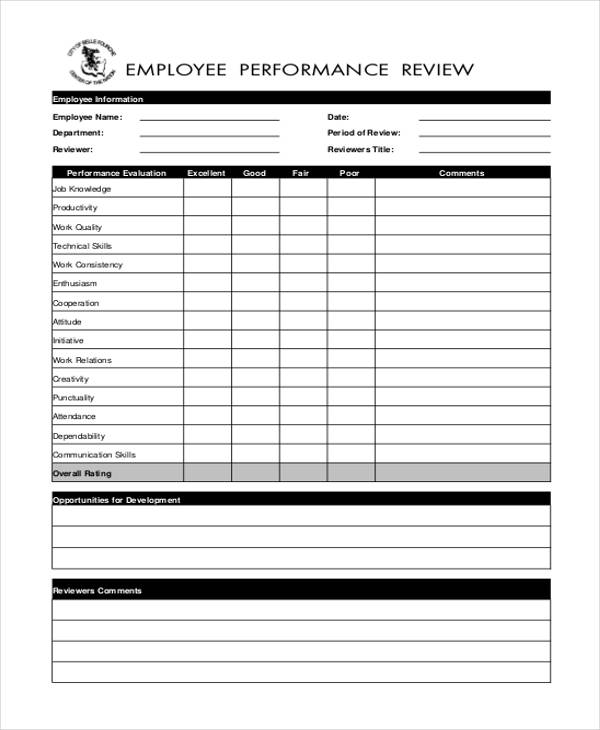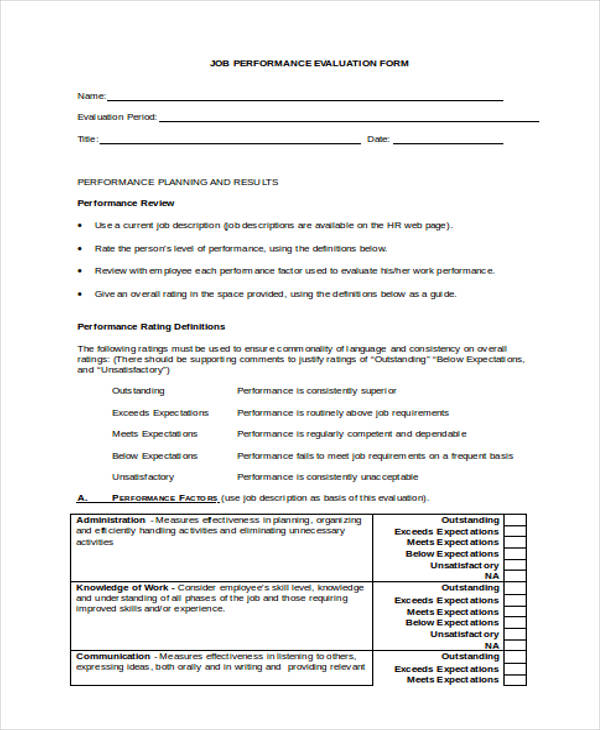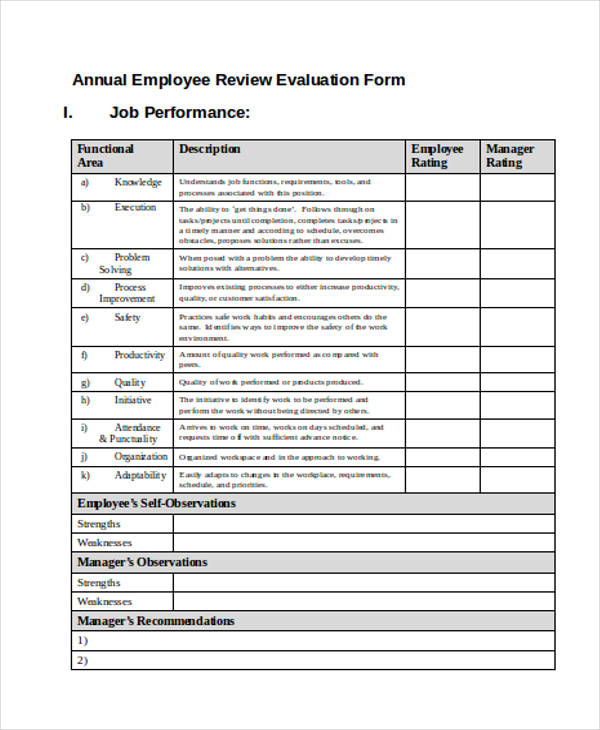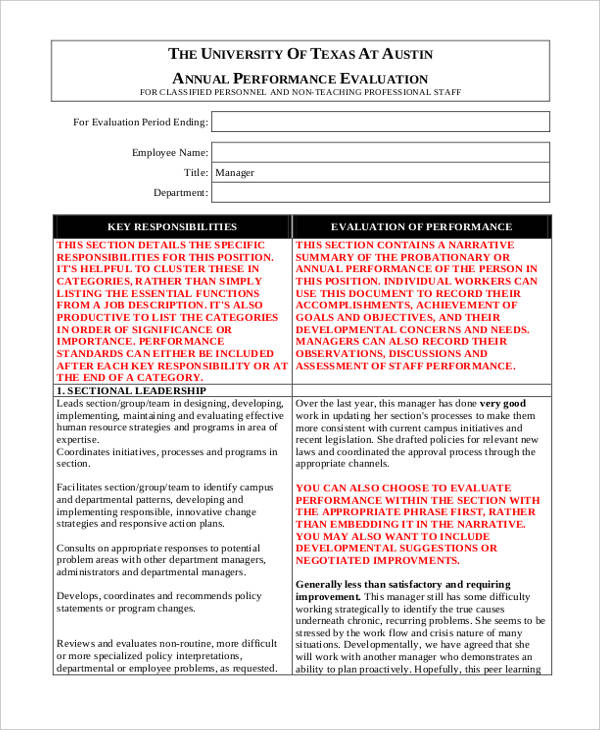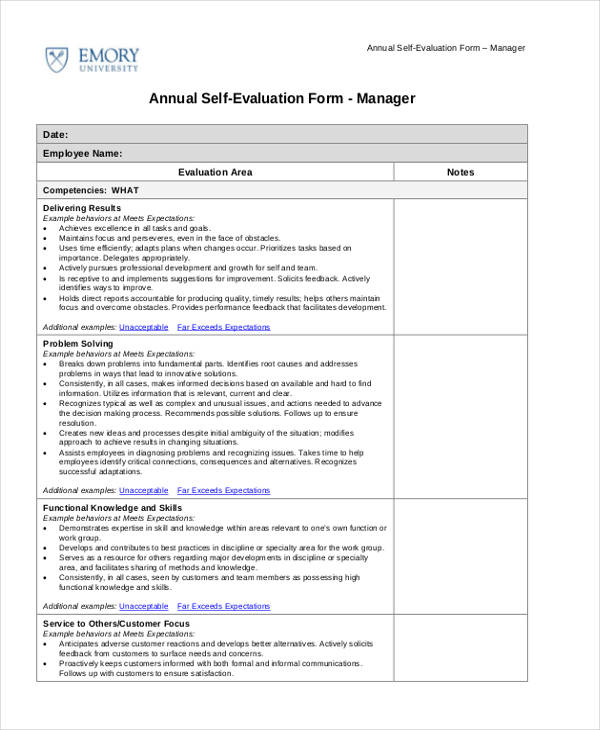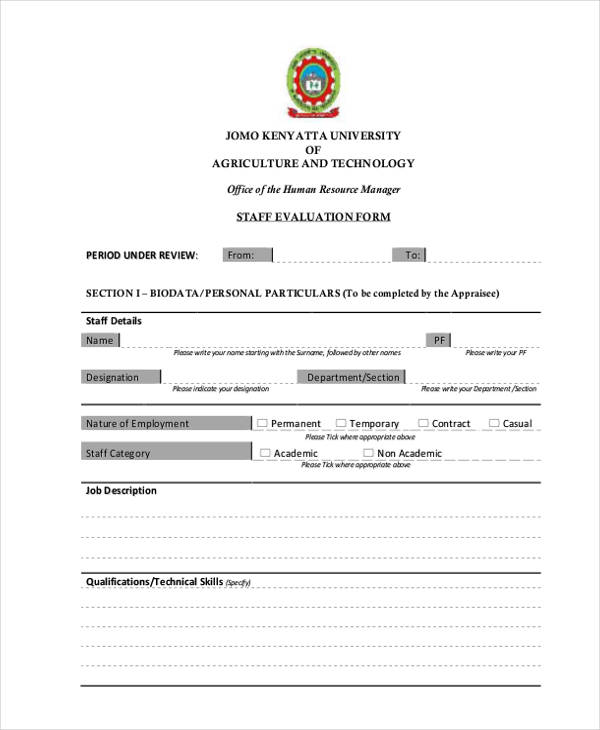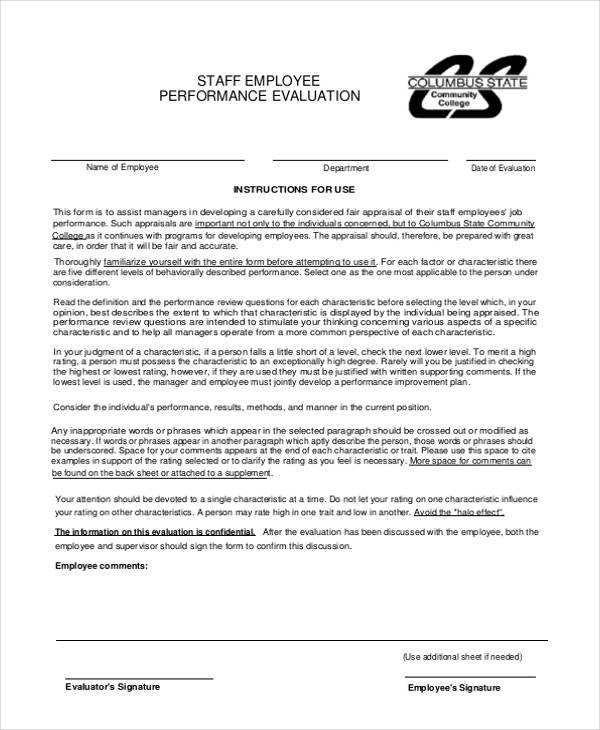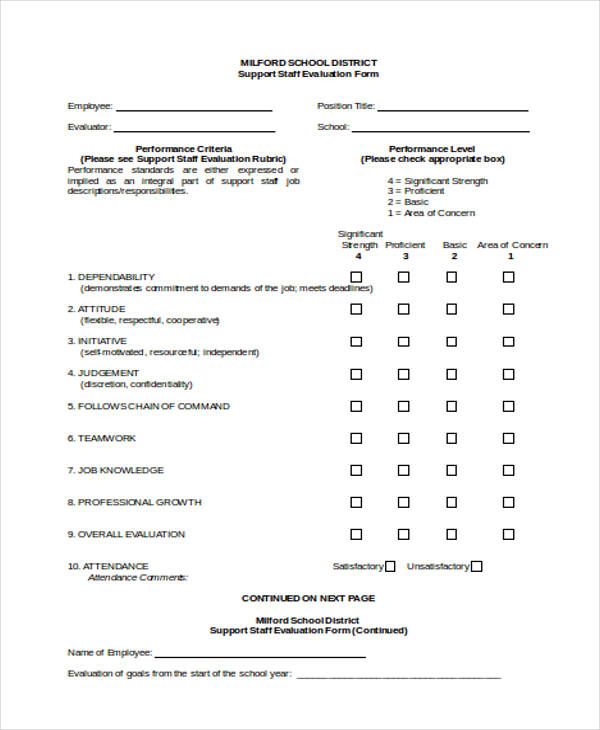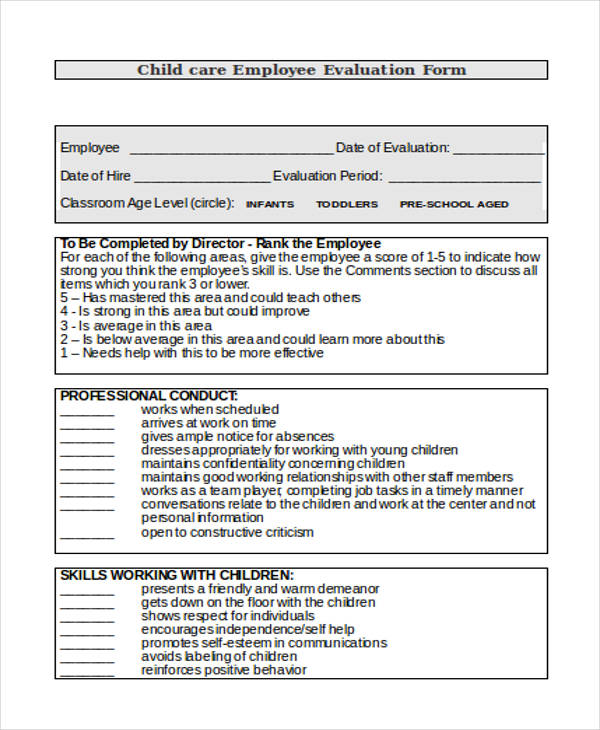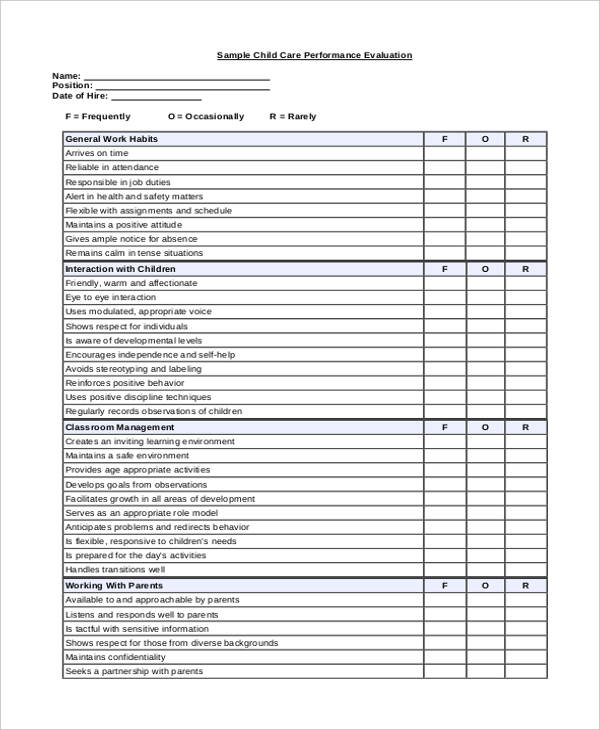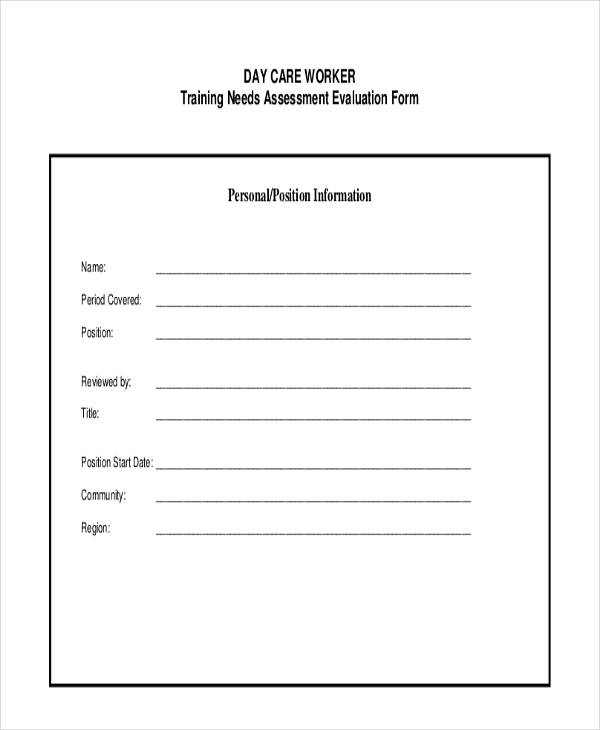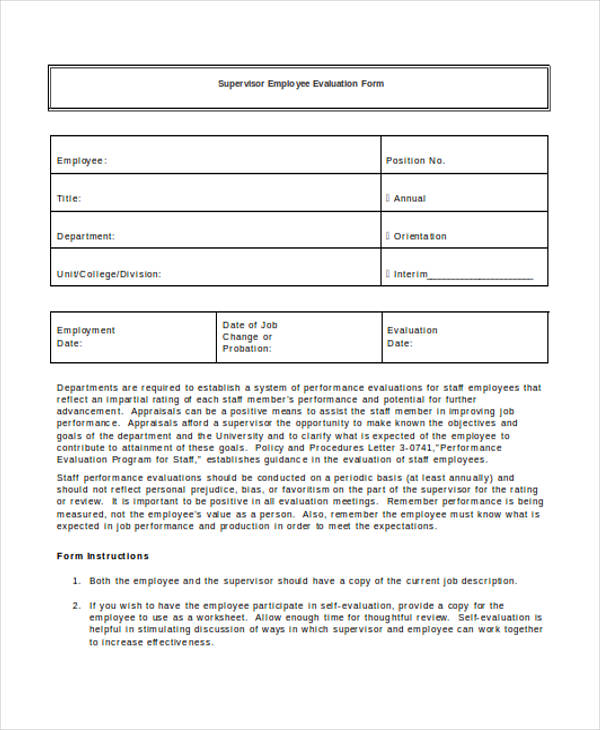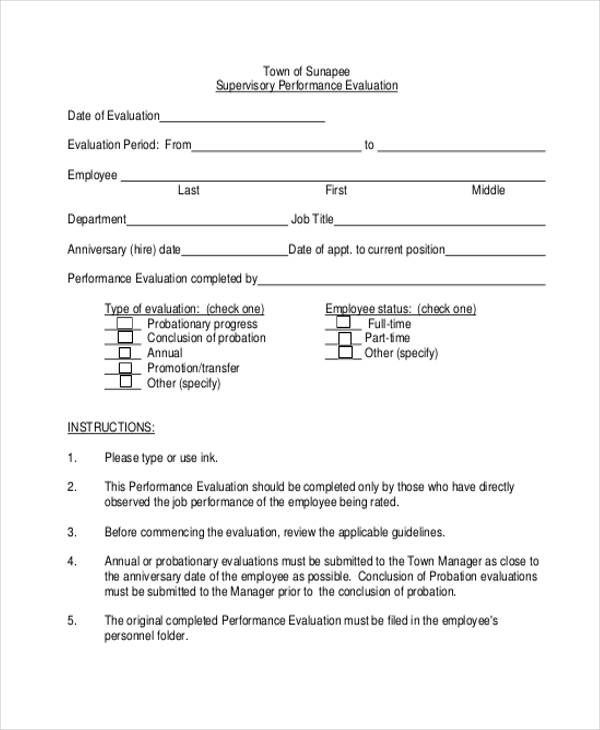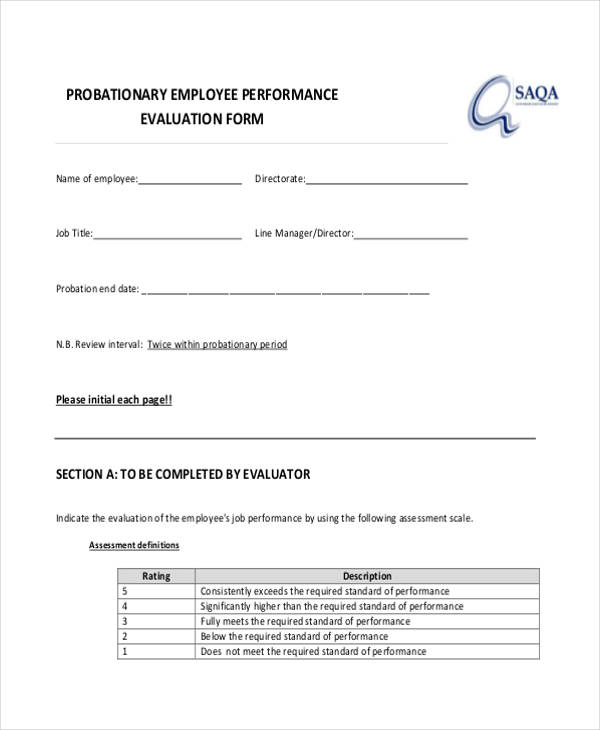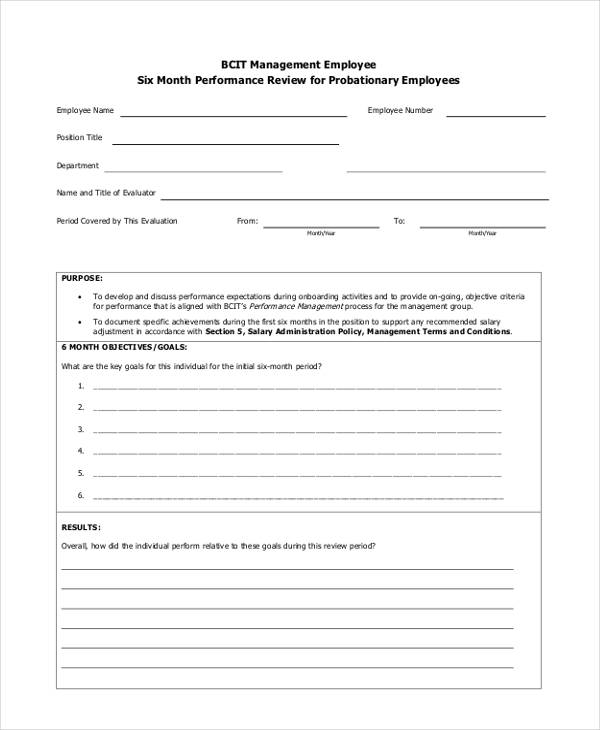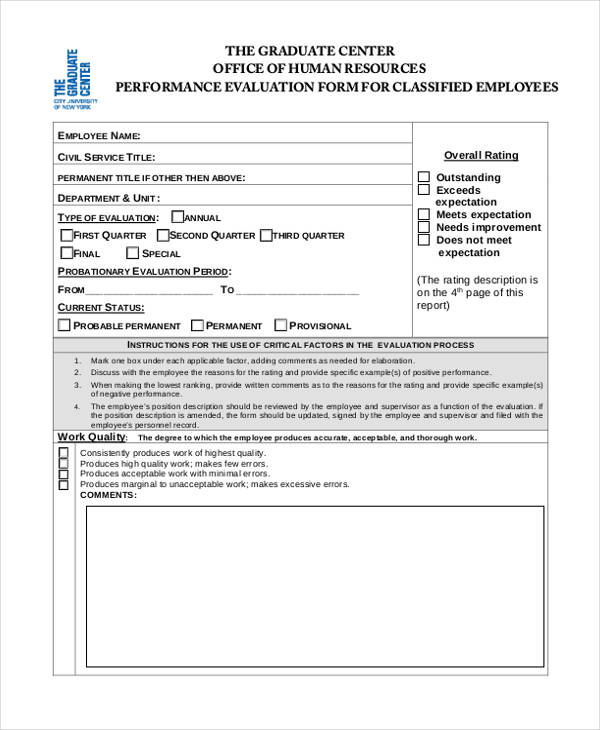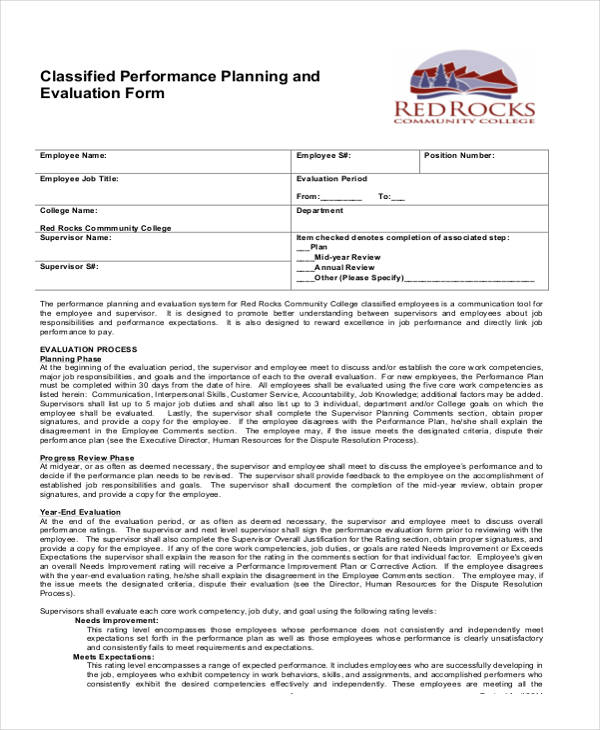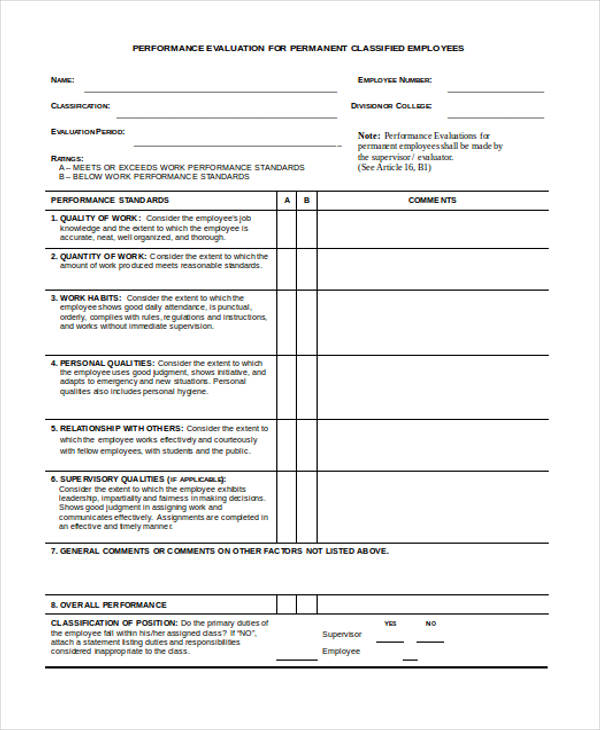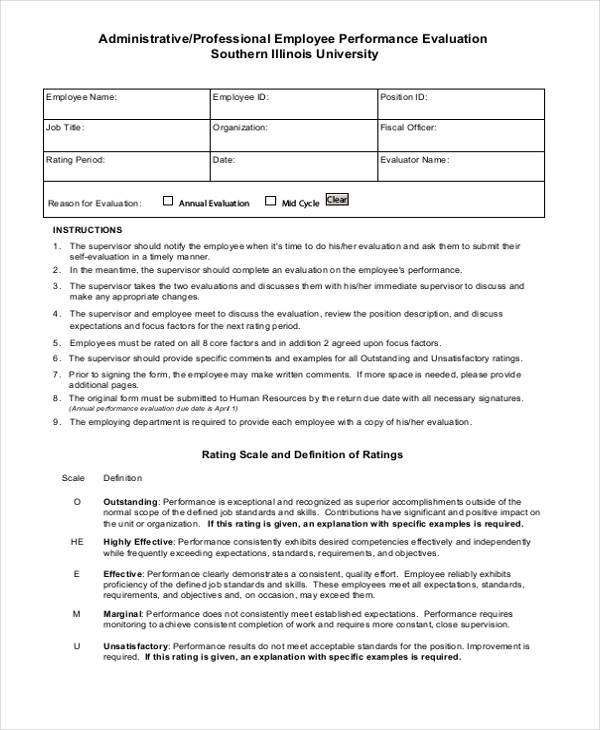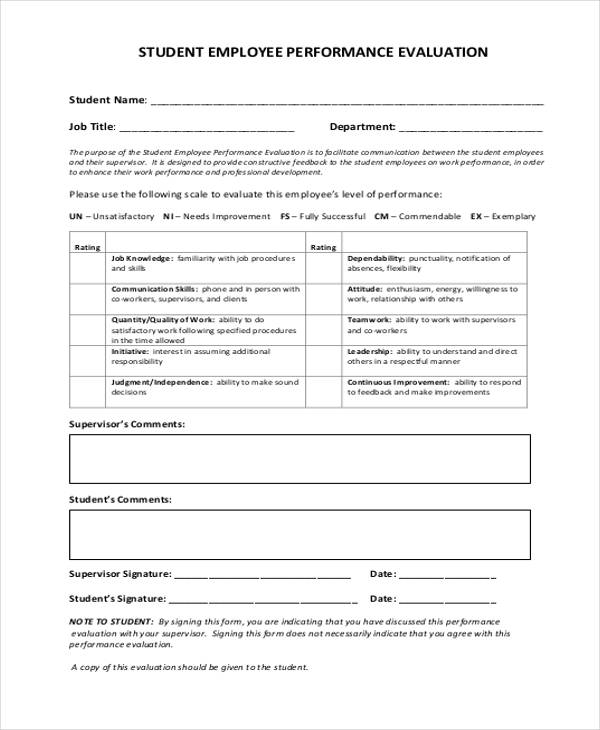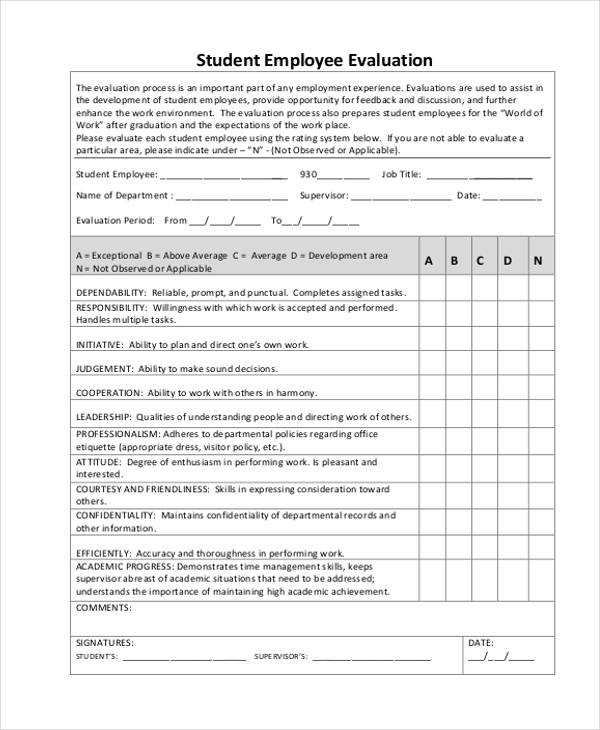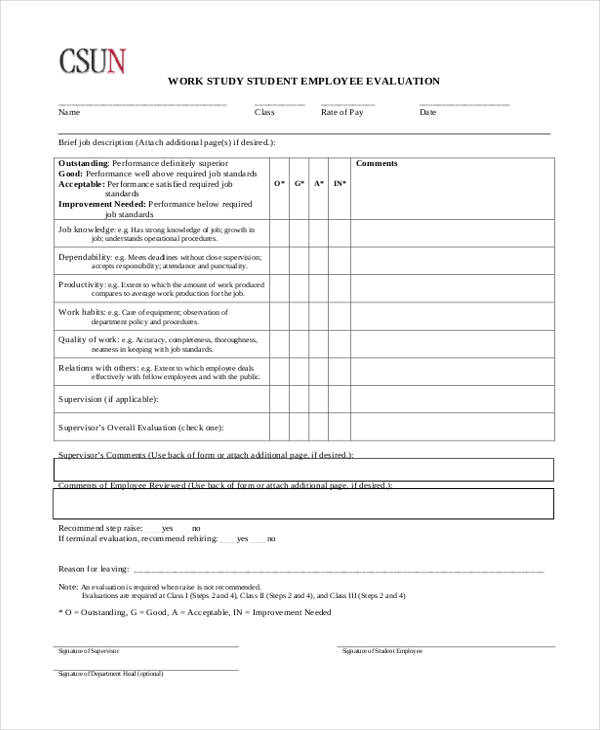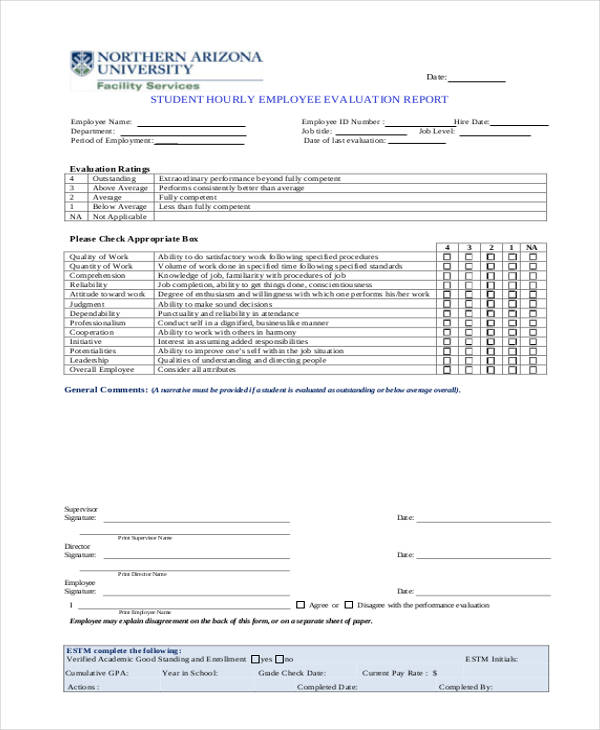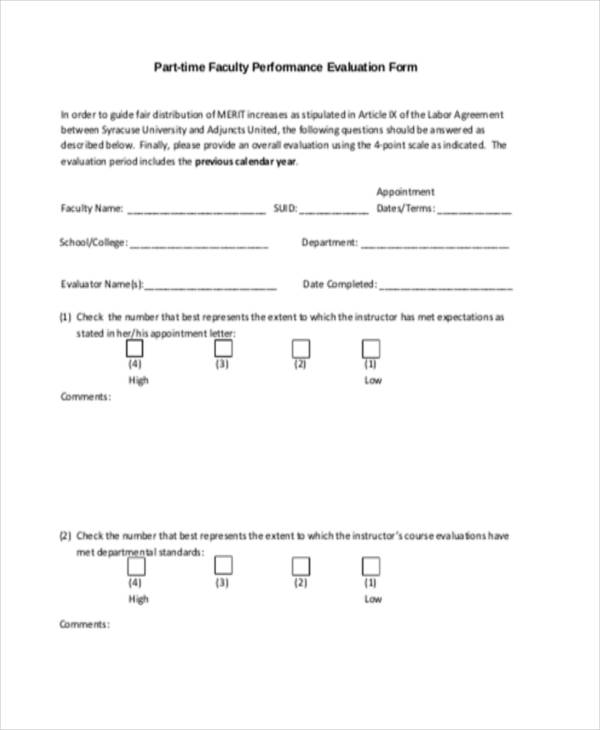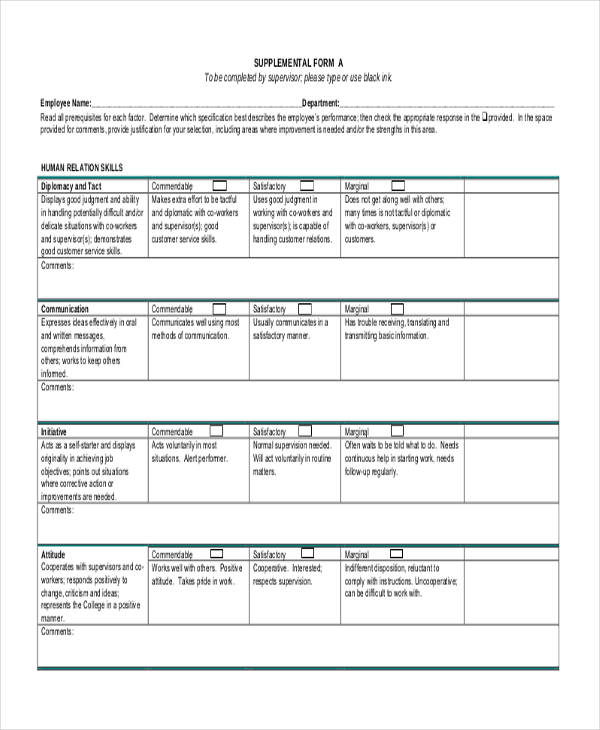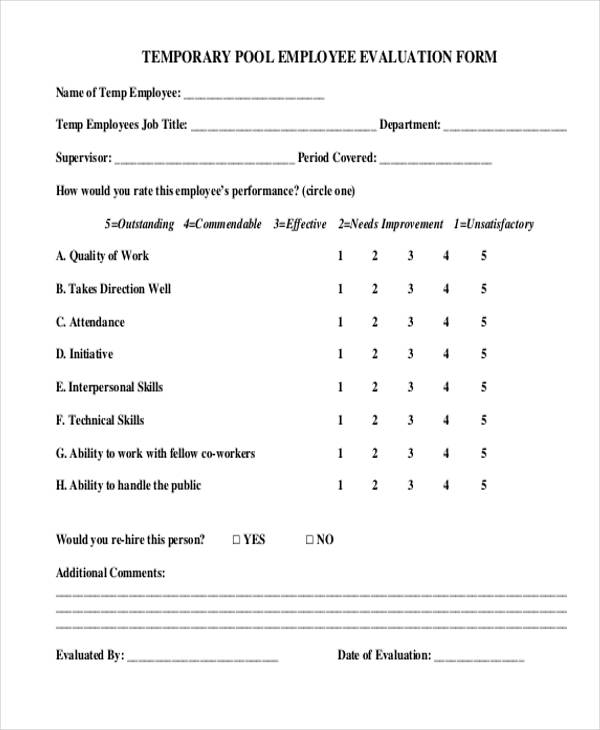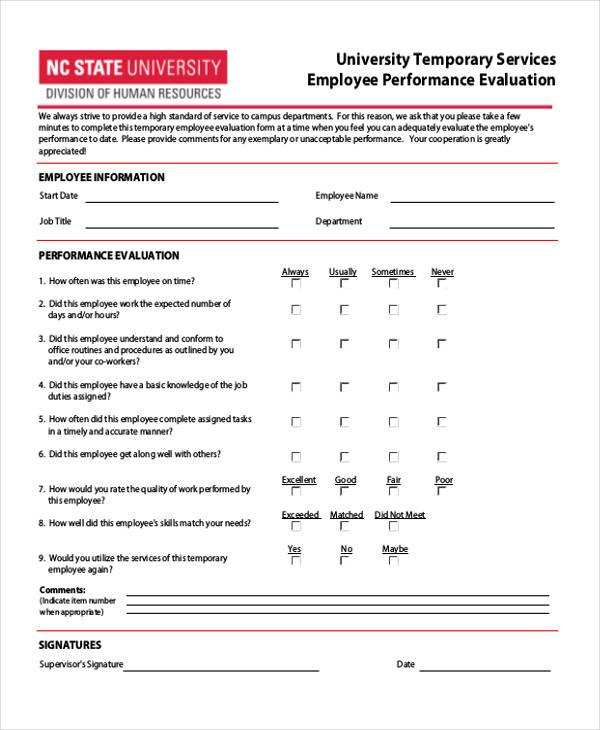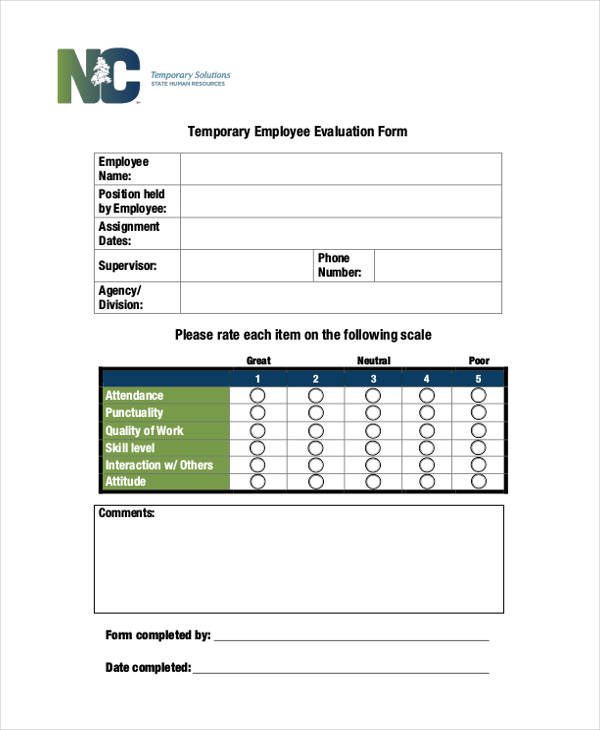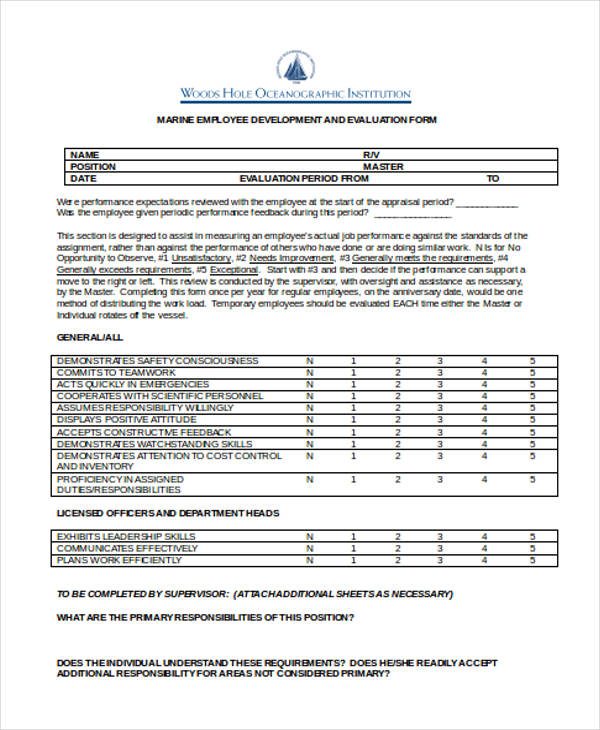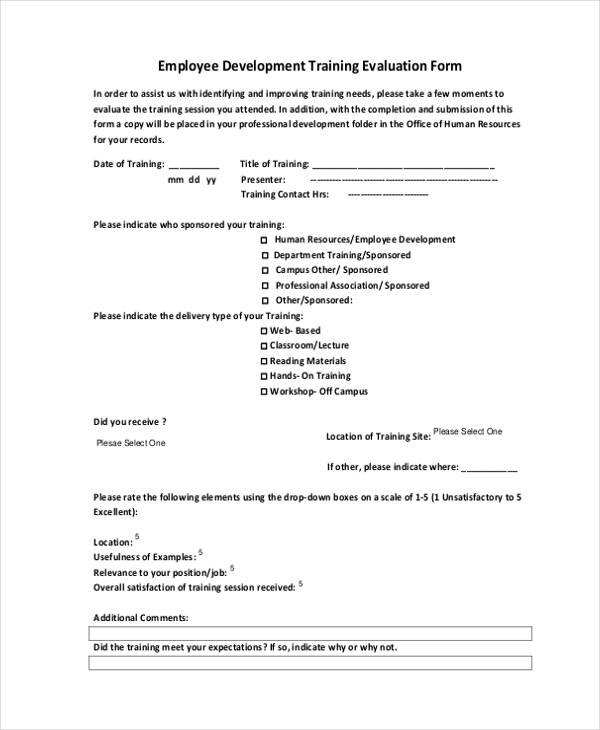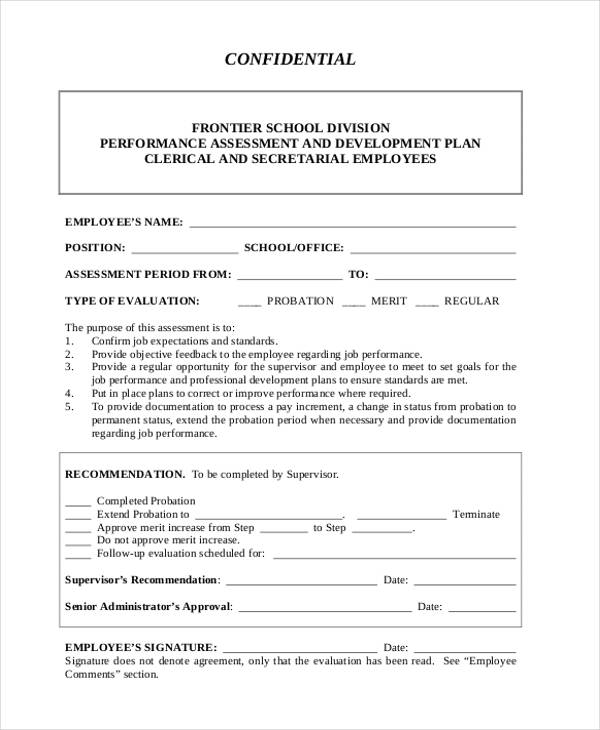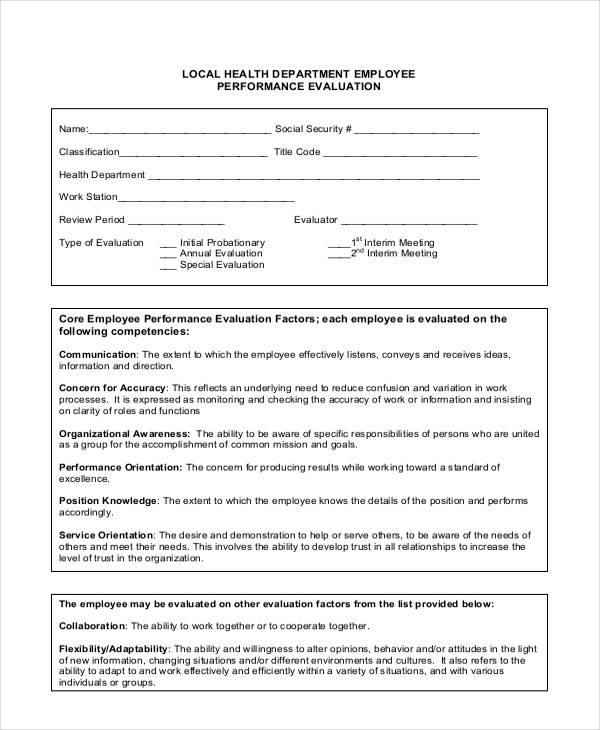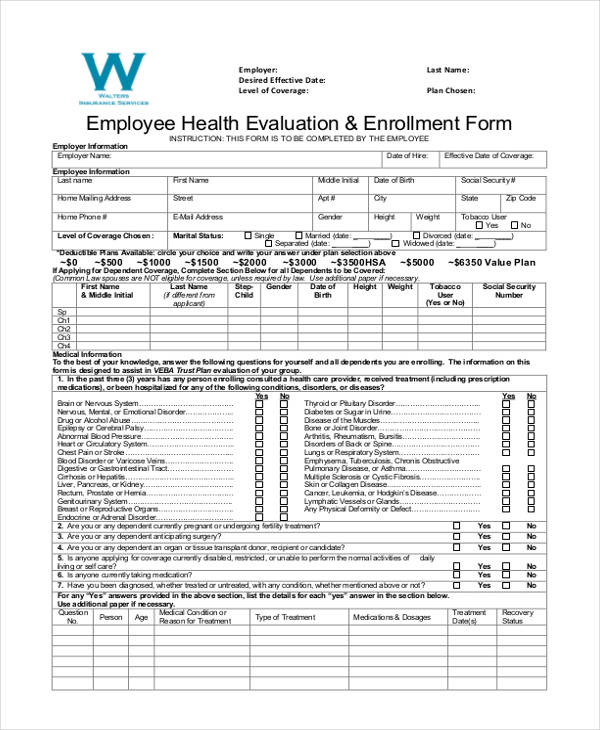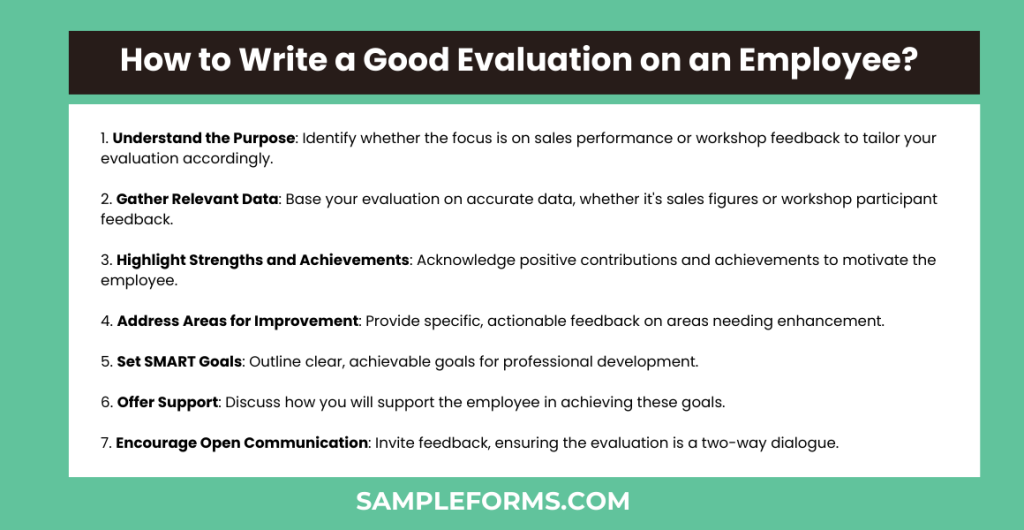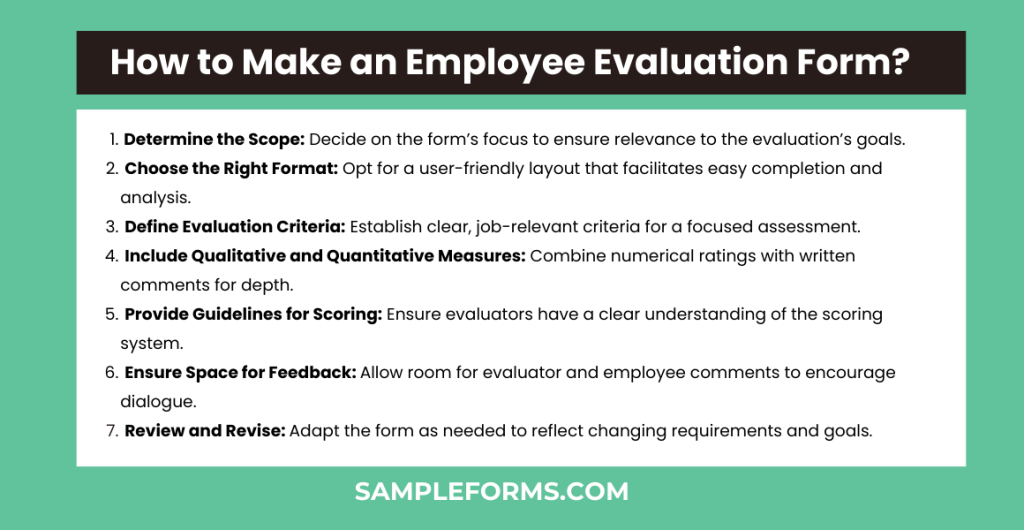Discover the ultimate guide to mastering Employee Evaluation Forms. Our comprehensive overview includes practical examples, shedding light on how these pivotal tools enhance performance reviews. Delve into the nuances of crafting effective evaluations with our expert tips. Whether you’re drafting an Employee Form or seeking the ideal Evaluation Form Word template, this guide is your one-stop resource for elevating workplace assessments. Elevate your HR practices today with our insightful exploration.
Download Employee Evaluation Form bundle
What is Employee Evaluation Form?
An Employee Evaluation Form is a key document used by employers to assess the performance, skills, and achievements of employees during a specific period. It serves as a structured approach for providing feedback, identifying areas for improvement, and setting goals for future performance. Typically encompassing various performance metrics and competencies, this form facilitates a transparent dialogue between managers and employees, aiming to support professional growth and organizational success.
Employee Evaluation Form Format
Employee Information
- Employee Name: [Text Field]
- Position: [Text Field]
- Department: [Text Field]
- Evaluation Date: [Date Picker]
- Evaluator: [Text Field]
Evaluation Criteria
- Work Quality: [Rating Scale: 1-5] | Comments: [Text Area]
- Productivity: [Rating Scale: 1-5] | Comments: [Text Area]
- Job Knowledge: [Rating Scale: 1-5] | Comments: [Text Area]
- Reliability: [Rating Scale: 1-5] | Comments: [Text Area]
- Communication: [Rating Scale: 1-5] | Comments: [Text Area]
- Teamwork: [Rating Scale: 1-5] | Comments: [Text Area]
- Initiative: [Rating Scale: 1-5] | Comments: [Text Area]
- Problem-Solving: [Rating Scale: 1-5] | Comments: [Text Area]
Overall Performance
- Overall Rating: [Rating Scale: 1-5]
- Summary Comments: [Text Area]
Goals for Next Period
- Performance Goals: [Text Area]
- Development Goals: [Text Area]
Employee Feedback
- Employee Comments: [Text Area]
Signatures
- Evaluator Signature: [Text Field] | Date: [Date Picker]
- Employee Signature: [Text Field] | Date: [Date Picker]
Employee Evaluation Form Template
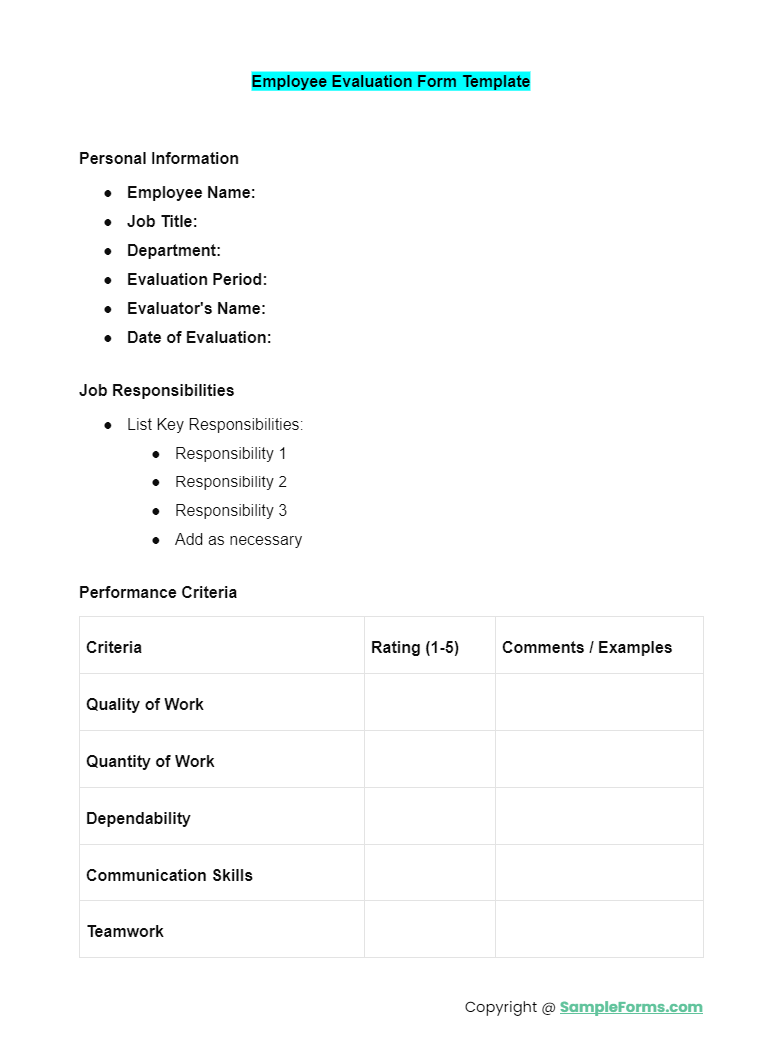
Discover the perfect Employee Evaluation Form Template, integrating Self Evaluation Form and Construction Employee Evaluation Form elements. Tailor your assessments with our versatile templates to foster self-awareness and evaluate construction staff’s competencies effectively.
Employee Evaluation Form PDF
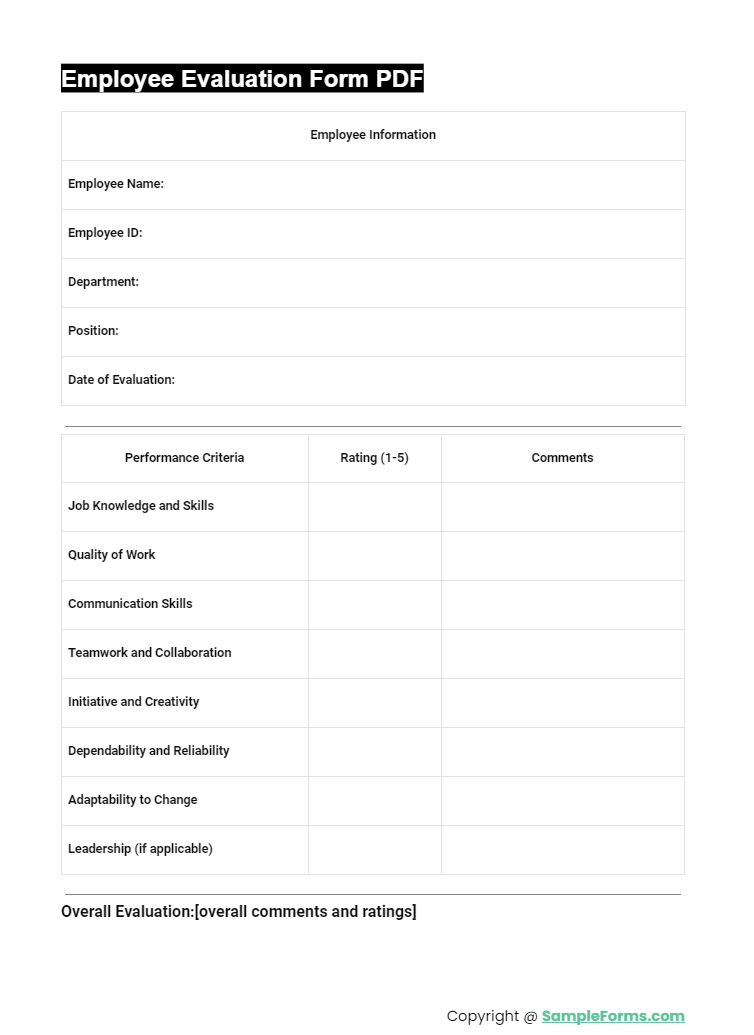
Our Employee Evaluation Form PDF collection features the Restaurant Employee Evaluation Form and Restaurant Employee Form, designed for the unique dynamics of the hospitality industry. Streamline your restaurant staff evaluations with our focused, downloadable PDF forms.
Free Employee Evaluation Form
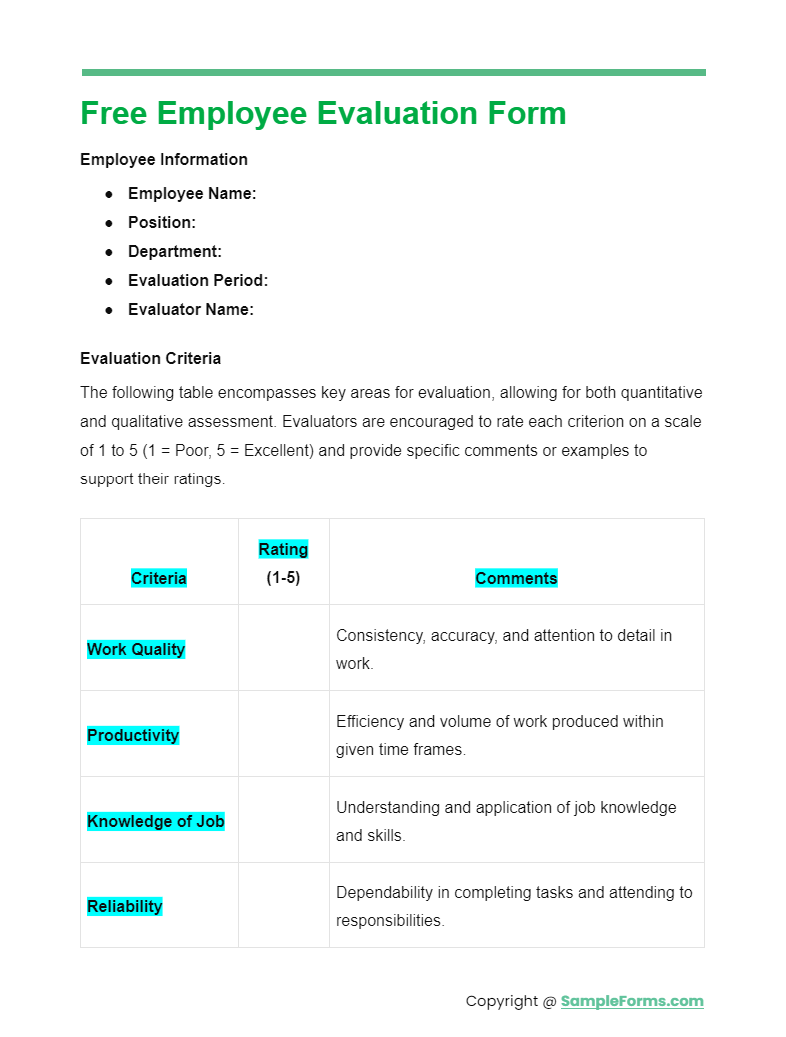
Access our Free Employee Evaluation Form suite, incorporating Training Evaluation Form and Employee Self Evaluation Form. Enhance your training sessions and empower employees with self-assessment tools at no cost.
Free Employee Performance Review Template Word
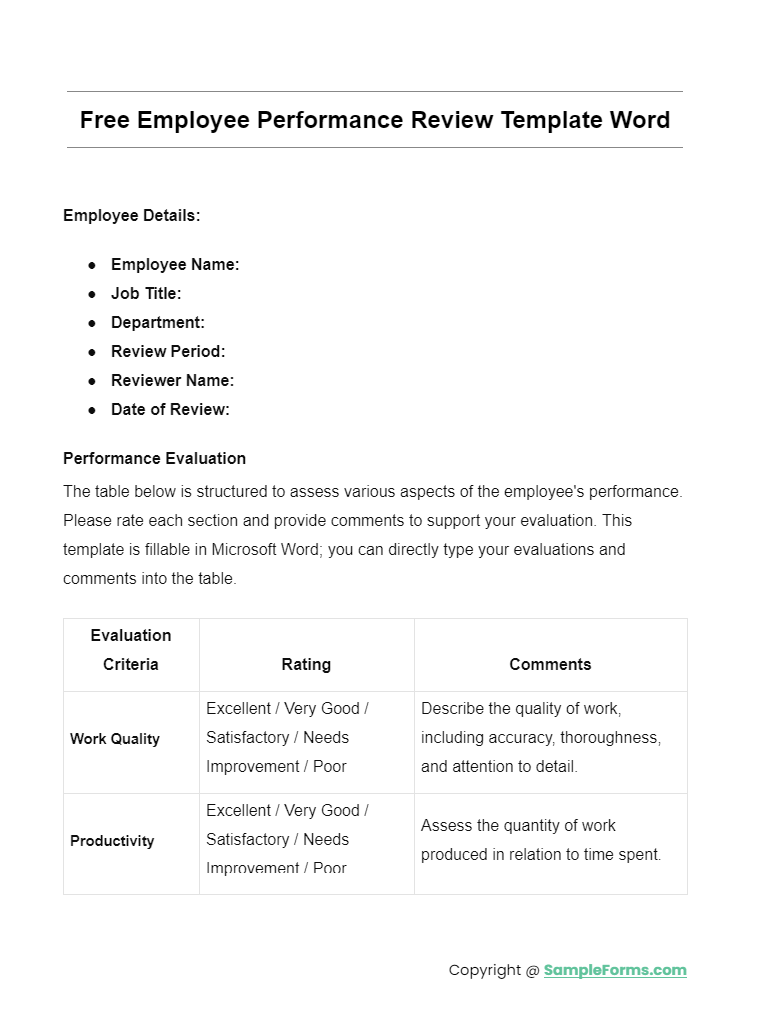
Leverage our Free Employee Performance Review Template Word, encompassing Employee Onboarding Checklist Form and Employee Transfer Form. Ensure a comprehensive onboarding experience and manage transfers smoothly with our editable Word templates.
Employee Job Evaluation Form
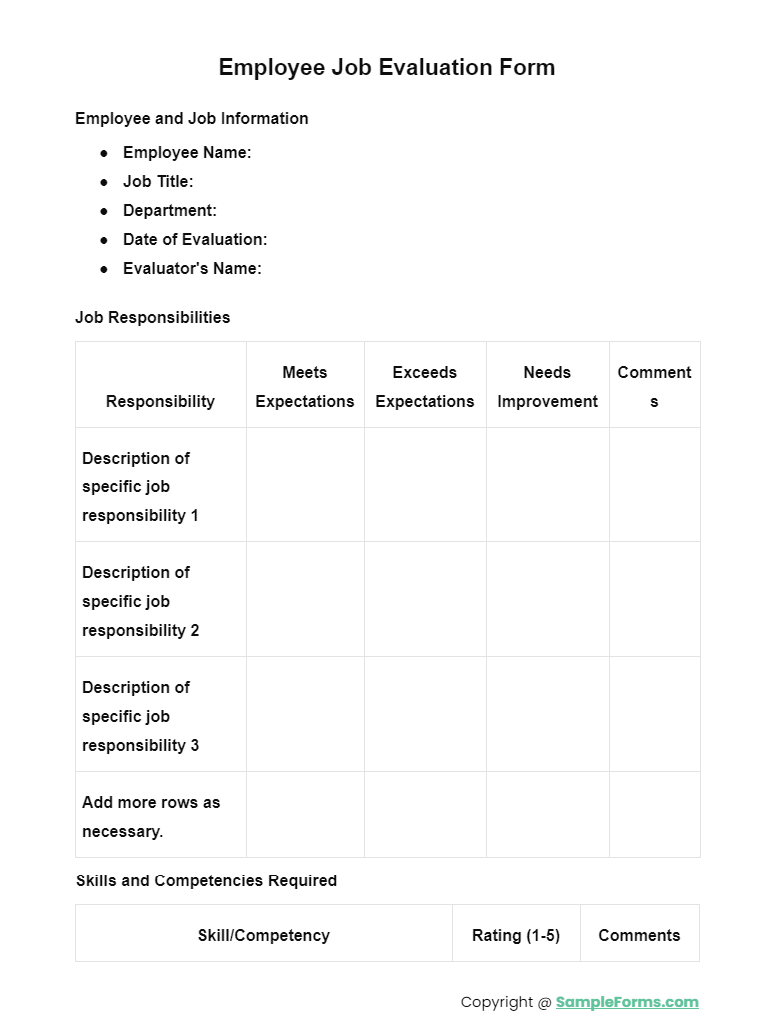
More Employee Evaluation Form Samples
Employee Performance Evaluation Forms
Free Employee Performance Evaluation Form
Employee Performance Review Evaluation Form
Employee Job Performance Evaluation Form
Annual Employee Evaluation Forms
Annual Employee Review Evaluation Form
Manager Annual Employee Evaluation Form
Annual Self-Employee Evaluation Form
Staff Employee Evaluation Forms
Academic Staff Employee Evaluation Form
Staff Employee Performance Evaluation Form
Support Staff Employee Evaluation Form
Child Care Employee Evaluation Forms
Sample Child care Employee Evaluation Form
Child Care Performance Employee Evaluation Form
Day Care Employee Evaluation Form
Employee evaluations are used as a tool for assessing and reviewing the performance of an employee. Evaluation systems are usually established by companies in order for them to consistently calibrate the way that an employee executes his tasks at work.
Supervisor Employee Evaluation Forms
Sample Supervisor Employee Evaluation Form
Supervisor Performance Employee Evaluation Form
Probationary Employee Evaluation Forms
Probationary Employee Performance Evaluation Form
30-Day Probationary Employee Evaluation Form
Probationary Management Employee Evaluation Form
Probationary Employee Evaluation Form Example
Classified Employee Evaluation Forms
Classified Employee Performance Evaluation Form
Classified Employee Planning and Evaluation Form
Classified Employee Permanent Evaluation Form
Administrative Classified Employee Evaluation Form
Student Employee Evaluation Forms
Student Employee Performance Evaluation Form
Sample Student Employee Evaluation Form
Work Study Student Employee Evaluation Form
Student Hourly Employee Evaluation Report Form
Part-Time Employee Evaluation Forms
Part-Time Faculty Employee Evaluation Form
Sample Part-Time Employee Evaluation Form
Temporary Employee Evaluation Forms
Temporary Pool Employee Evaluation Form
Temporary Employee Performance Evaluation Form
Temporary Employee Evaluation Form Example
Employee Development Evaluation Forms
Marine Employee Development Evaluation Form
Employee Development Training Evaluation Form
Employee Performance Development Evaluation Form
Employee Health Evaluation Forms
Employee Health Performance Evaluation Form
Employee Health Evaluation & Enrollment Form
Employee Evaluation Form Sample
The system of evaluating employees in companies is a continuous process that usually happens almost every day with managers and supervisors observing each employee and rating each one in comparison to others. Evaluations are usually done by rating or ranking students based on a rubric that is indicated in a Presentation Evaluation Form.
How Can I Conduct Targeted and Focused Evaluations?
As easy as it may seem, conducting evaluations can be a pretty tricky feat. Evaluations take time to be carefully plotted out, and as soon as you are conducting the evaluation, you have to be sure that you are able to provide unbiased and genuine ratings to an employee, and finally, you need to be able to properly provide and document your assessments in order to provide feedback. Below is a step-by-step process on how to conduct an effective and constructive Seminar Evaluation Form in the workplace.
1. Have a Goal or an Objective
A set goal and objective help you to properly conduct your assessments. Companies usually have a set criteria for when supervisors are asked to evaluate employees. You can also download our evaluation forms, which are available in Doc and PDF formats, to help you save time and money.
2. Store Data Properly
Documentation is essential in business. Be sure to properly store your evaluation forms or any type of business document. The results of your evaluation forms can determine an employee’s promotion or termination. Unlawful termination can be grounds for a labor dispute, which is why it is imperative you file your evaluation documents properly to support your decision in firing or promoting an employee.
3. Always Provide Feedback
An evaluation process should always end with feedback. Feedback is the gist of an evaluation because it notifies the subjects of the results of the assessment.
Set aside time to talk with your employees and give them the details of your assessment. Be tactful with your comments and suggestions. Although feedback should not be given sweetly, they should also not be taken as a chance to verbally whiplash an employee just because you had an altercation. If you feel you are not competent to give out unbiased evaluations, let someone else do it. Be direct and straight to the point with your feedback, give credit where credit is due, and provide suggestions on how an employee can improve better in a weak area.
In a traditional setting, employee evaluations are usually done by a supervisor or a manager. During the feedback session, the manager usually starts off by commending the employee for his achievements and contributions to the company. This is then followed suit by the employee’s shortcomings. As soon as the supervisor has provided the full result of the evaluation, both the supervisor and the employee will then brainstorm on an action plan to help the employee improve. Some companies ask the employee to make a self-evaluation prior to giving feedback.
Types of Employee Evaluation Forms
What are the guidelines of Employee Evaluation Forms?
Related Posts
-
FREE 5+ Substitute Teacher Evaluation Forms in PDF | MS Word | Excel
-
FREE 4+ HR Interview Evaluation Forms in PDF | MS Word | Excel
-
Candidate Evaluation Form
-
FREE 3+ Restaurant Manager Evaluation Forms in PDF
-
Call Monitoring Evaluation Form
-
FREE 5+ General Manager Evaluation Forms in PDF
-
Chef Evaluation Form
-
FREE 6+ Business Credit Checklist Forms in PDF
-
FREE 8+ Kitchen Evaluation Forms in PDF | MS Word
-
Customer Service Evaluation Form
-
FREE 15+ Grant Evaluation Forms in PDF | MS Word
-
FREE 14+ Volunteer Evaluation Forms in PDF
-
Mentee Evaluation Form
-
Speaker Evaluation Form
-
FREE 14+ Vehicle Evaluation Forms in PDF
